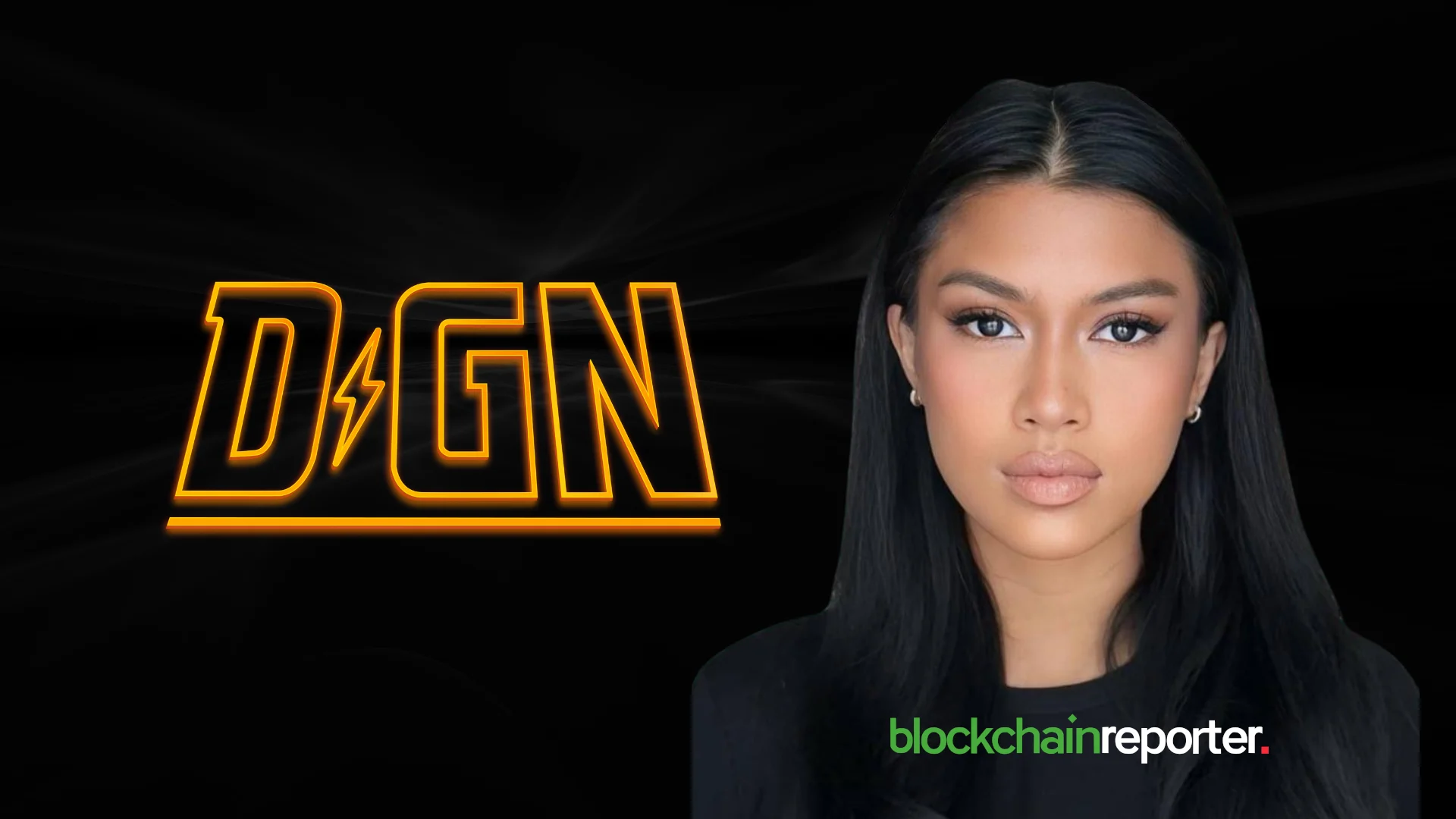Decentralizing Data: How D-GN CEO Johanna Cabildo Is Rewriting AI’s Playbook
0
0

BlockchainReporter caught up with Johanna Cabildo fresh off a whirlwind week at Token2049 in Dubai—where conversations about AI’s future reached a fever pitch. Between back-to-back panels and impromptu strategy sessions, Johanna sounded a clear wake-up call: the revolutionary power of today’s AI rests on an exploitative base of scraped content, invisible labor, and unaccountable algorithms.
As CEO of Data Guardians Network (D-GN), Johanna is building an alternative. By turning data labeling into a gamified, tokenized economy, she’s empowering everyday people—farmers in remote villages, gig workers in urban centers, refugees in camps—to claim their role as the true “trainers” of tomorrow’s intelligence. With blockchain-backed provenance and community governance, D-GN doesn’t just promise fair pay; it reimagines AI as a participatory, transparent system designed for human dignity.
In the following interview, Johanna unpacks Big Tech’s dirty data secret, the perils of centralized AI, and how a decentralized network of data stewards can flip the script. From post-Token2049 reflections to a roadmap for investors and policymakers, here’s why reclaiming the AI mirror has never been more urgent.
Q1. You’ve just wrapped a whirlwind week at Token2049 in Dubai—what were your standout moments or unexpected insights from the conference?
Token 2049 was electric. We swapped ideas with executives from Hub71, droppGroup, Binance, Crypto.com, Tether, Pump.fun, and many other pioneers alongside founders, investors, incubators, and regulators. Every meeting drove home the same insight: AI is only as strong as the data that shapes it and blockchain-powered Web3 is the trust layer that makes that data future-proof. Watching heavyweight exchanges echo D‑GN’s vision felt like a turning point. The widespread excitement around community-owned, verifiable datasets shows the industry is ready for a fairer, more inclusive intelligence economy.
Q2. How did conversations at Token2049 shape or validate D-GN’s mission to decentralize AI training?
We received overwhelming support for our focus on the gamification of user tasks and for the fact that data contributors deserve visibility, voice, and value. At D-GN, we’re building exactly that: a decentralized protocol that lets everyday users earn USDT from labeling data, while anchoring transparency and traceability into every step. We got great support for our payments being in USDT. Everyone was excited to have a new way to bring millions of users into the Web3 space.
Token2049 just amplified our original idea tenfold—it’s no longer radical to say AI needs a new data layer. It’s just reality.
Q3. You often describe today’s most powerful AI as “built on exploitative foundations.” Can you unpack what that exploitation looks like in practice?
Exploitation in AI happens at two levels. First, there’s the silent scraping of public content —across art, blogs, photos, Reddit feeds, captchas, and more—all used without consent or compensation. Second, there’s the undervalued human labor: armies of people labeling data under opaque contracts. We want to make sure that there is a more equitable and fair approach to AI training worldwide.
Q4. From scraped art to hidden labor, which aspects of AI’s current data sourcing do you find most alarming—and why?
What alarms me the most is the illusion of neutrality. When AI is trained on scraped content, it reflects the biases of the loudest, most accessible sources. And when it relies on underpaid laborers working in silence, we miss the perspectives of those actually shaping the models. That combination—biased in, invisible out—creates brittle systems that fail the very people they claim to serve.
Only the richest countries that have the greatest linguistic footprint on the internet are represented in the majority of LLMs. So many cultures and ethnicities are underrepresented or just represented incorrectly. This one example highlights the scale of the issue incredibly well. When an AI model gets garbage data in, you get garbage out.
Q5. Centralized, black-box AI systems are notorious for bias and opacity. Who currently holds the power to decide what data gets included—and whose voices end up erased?
Right now, that power sits with a handful of companies, with decisions made behind closed doors. Their decisions—what forums to scrape, what information is deemed unworthy or not useful, what edge cases to omit—shape the worldview of billions of users. Marginalized communities, indigenous knowledge systems, and non-Western narratives are consistently left out. This is only exacerbated as using an LLM search engine gets more common, and if we don’t intervene, that exclusion becomes automated. A very good example of the data issue facing the AI industry today is a study by MIT’s Media Lab that found that commercial facial-analysis systems misidentified the gender of dark-skinned women with error rates up to 34.7%, compared to just 0.8% for light-skinned men. This disparity stems from the underrepresentation of darker-skinned individuals in training datasets, highlighting the need for more inclusive data pipelines in AI development.
Q6. How do these opaque models fuel misinformation, and what real-world harms have you witnessed?
We’ve seen language models confidently assert false medical advice, or misidentify individuals based on skewed image sets. Worse, they often reflect discriminatory assumptions baked into the training data. The harm isn’t theoretical—it’s happening in hiring systems, legal algorithms, even search engines. Bias at scale becomes structural and inherently more harmful.
In other settings, such issues can have more practical effects. AI models used for predictive maintenance reduce risk of physical injury, up until the point the data doesn’t help improve anymore. We can quickly create a false sense of security based on the assumption that our AI is always working at its best capability.
Q7. In 2025, users are no longer passive consumers but active builders of AI. How is D-GN empowering everyday people to reclaim “trainer” status?
We’ve built a gamified, mobile-first platform that pays our ‘builders’ immediately in USDT—where anyone can participate in labeling, validating, and curating datasets. Whether you’re a student in the USA or a gig worker in São Paulo, you can earn in a stablecoin, level up your skills, and see your contribution tracked on-chain. You’re not just training AI—you’re shaping the future of it.
Q8. What has been the most powerful example of community-driven data stewardship you’ve seen to date?
Outside of D-GN, I love the work that Mozilla Common Voice is undertaking. This ties into my personal experience with cross-cultural ties of culture to language. It’s an area that already affects many of my friends and colleagues.
Mozilla Common Voice obviously has a small focus—language—and uses unpaid volunteers instead of paid workers. We want to add to these existing programs and broaden the impact to encompass the whole world, and improve the biggest AI models applied around the world—while also paying people fairly for their input.
Q9. D-GN uses gamified labeling and tokenized rewards to transform unpaid labor into real income. Can you walk us through how someone in a rural area—or even a refugee—might participate and earn?
Absolutely. Our platform is optimized to function seamlessly on entry-level smartphones and low-bandwidth LTE networks, ensuring accessibility in rural and underserved areas. Users need only a basic smartphone and an internet connection. They can quickly sign up for a free digital wallet (taking just 20 seconds once), then ‘hatch’ their character and engage in micro-tasks within a gamified environment, such as tagging objects in images or validating translations. Upon completion, they receive immediate rewards via USDT payments and in-game D-GN Points. All contributions are tracked via blockchain, providing proof of provenance. To enhance engagement, we incorporate D-GN Points (XP) and badges, allowing users to level up their characters with in-game upgrades, track successes, and progress from simple tasks to more specialized ones over time.
Globally, approximately 90% of the population resides within the coverage area of a 4G network, making our platform accessible to a vast majority. Additionally, companies like Xiaomi and Transsion are driving down smartphone costs, further enhancing affordability. Projects like Starlink are also improving connectivity in remote regions, bridging the digital divide.
This combination of optimized platform design, widespread mobile broadband coverage, affordable devices, and improving connectivity ensures that our solution is accessible, even in the most remote areas.
Q10. Blockchain‐backed provenance and community governance are central to D-GN. How do these mechanisms prevent the very extractive practices you’re fighting against?
Provenance ensures every labeled datapoint is traceable to its originator. We wanted to make sure there was no more shadow labor. Community governance means major decisions will end up having community input and are voted on by token holders. It’s not perfect, but it’s a radically different model from today’s top-down data monopolies. We don’t want to recreate a company where those who benefit the most are the ones owning AI.
Q11. What safeguards ensure that “decentralized intelligence” doesn’t simply reproduce old power imbalances in a new guise?
Transparency is our first line of defense: all transactions, votes, and rewards are visible on-chain. Second, we’re building in equity from the start—curating diverse annotator cohorts and introducing reputation systems that uplift consistent, quality contributors rather than just whales. We want to make sure that the users who perform best and are most committed get the benefits for that effort. If decentralization doesn’t elevate the underserved, it’s just rebranded centralization.
Q12. What concrete steps should investors, builders, and policymakers take right now to take back power?
Investors can reclaim power by funding ventures that prove where every bit of data comes from and keep people at the centre. Builders can embed ethics early by making their data pipelines as transparent as their code. Policymakers can recognise data contribution as real labour and pass laws that make transparency mandatory. The AI race so far has been materialistic—we want to flip this from a quantity play to a pure quality play.
Q13. Looking ahead, what milestones should the AI community expect from D-GN over the next 12 months?
Over the next 12 months, we are moving from pilot to scale. We will deliver the first two full modules, including the initial Swipe2Earn and Speak2Earn journeys, and launch our Telegram mini app to everyone. With this, we’ll deliver standard text and image datasets, as well as rich voice, lip sync, and video datasets. Several Fortune 500 companies have already committed to sourcing ethical training data through D-GN, with the first integrations going live this year.
On the governance front, our community will elect its first stewards, giving contributors a direct vote on policy and payouts. The headline goal is clear: turn one hundred thousand early contributors into over one million engaged data owners and prove that fair rewards and world-class AI can thrive together.
Q14. Finally, for someone intrigued by data stewardship but unsure where to start, what’s your advice for taking those first steps into D-GN’s network?
Step in today. Join the D‑GN Telegram, engage with the team directly, secure your place on the early access list, and explore a few bite-size micro tasks. You do not need to write code or be a data scientist; curiosity and lived experience are enough. The sooner you contribute, the faster your influence, payments, and rewards grow alongside an industry that is just coming of age. Your language, culture, and perspective are the raw material ethical AI depends on. Every action earns tangible rewards and a genuine vote on how intelligence evolves. Start as a steward and become a stakeholder with a global community rewriting the future of data ownership.
0
0
 Manage all your crypto, NFT and DeFi from one place
Manage all your crypto, NFT and DeFi from one placeSecurely connect the portfolio you’re using to start.




